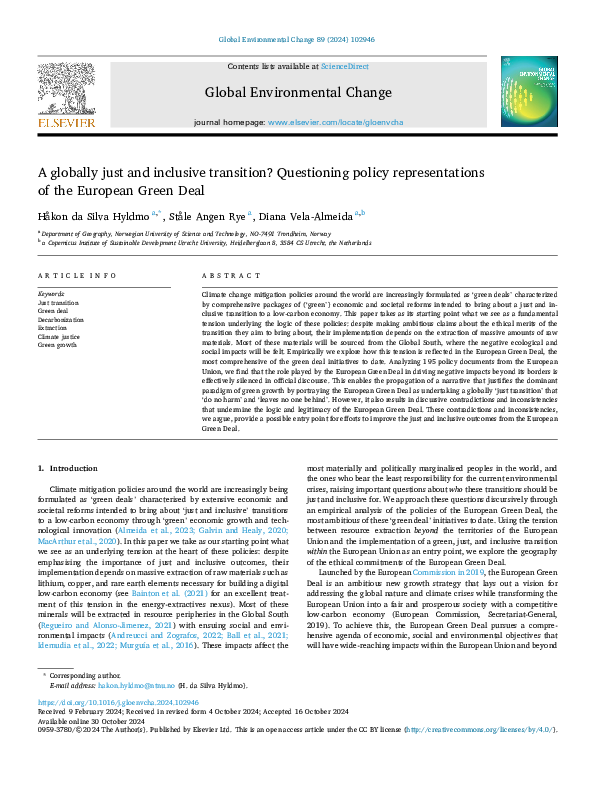A globally just and inclusive transition? Questioning policy representations of the European Green Deal

da Silva Hyldmo, Håkon ; Rye, Ståle Angen ; Vela Almeida, Diana
2024
89
102946
environmental policy ; EU policy ; just transition ; decarbonization ; sustainable development
Environment
https://doi.org/10.1016/j.gloenvcha.2024.102946
English
Bibliogr.
This is an open access article under the CC BY license ( http://creativecommons.org/licenses/by/4.0/ ).
"Climate change mitigation policies around the world are increasingly formulated as ‘green deals' characterized by comprehensive packages of (‘green') economic and societal reforms intended to bring about a just and inclusive transition to a low-carbon economy. This paper takes as its starting point what we see as a fundamental tension underlying the logic of these policies: despite making ambitious claims about the ethical merits of the transition they aim to bring about, their implementation depends on the extraction of massive amounts of raw materials. Most of these materials will be sourced from the Global South, where the negative ecological and social impacts will be felt. Empirically we explore how this tension is reflected in the European Green Deal, the most comprehensive of the green deal initiatives to date. Analyzing 195 policy documents from the European Union, we find that the role played by the European Green Deal in driving negative impacts beyond its borders is effectively silenced in official discourse. This enables the propagation of a narrative that justifies the dominant paradigm of green growth by portraying the European Green Deal as undertaking a globally ‘just transition' that ‘do no harm' and ‘leaves no one behind'. However, it also results in discursive contradictions and inconsistencies that undermine the logic and legitimacy of the European Green Deal. These contradictions and inconsistencies, we argue, provide a possible entry point for efforts to improve the just and inclusive outcomes from the European Green Deal."
Digital
The ETUI is co-funded by the European Union. Views and opinions expressed are however those of the author(s) only and do not necessarily reflect those of the European Union or the ETUI.